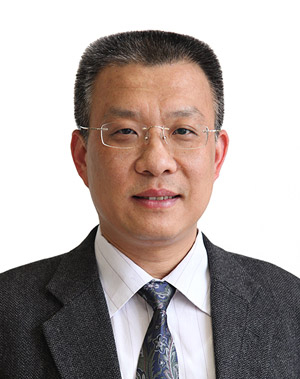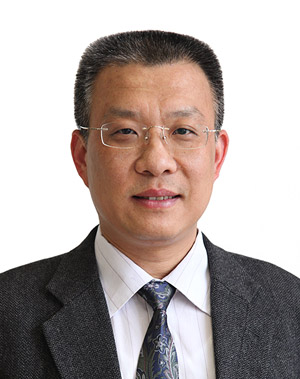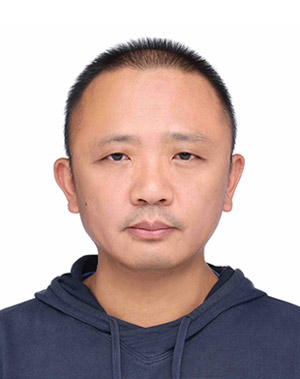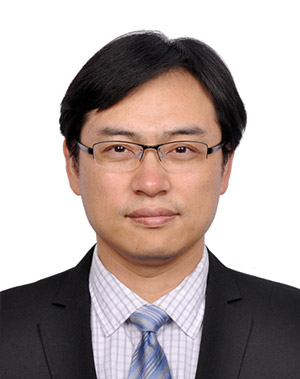

Computational Prediction of Topological Electronic States and Materials
The study of topological electronic states and their materials has rapidly developed into an important frontier direction in the field of condensed matter physics in recent years. It has greatly expanded our understanding of the nature of matter states and laid a scientific and material foundation for the development of new types of functional devices with rich and novel topological properties. The rapid development of this field in last decade benefits from its rare and unique development model, which is to predict materials firstly through calculations and then to confirm them through experiments. The award-winning team has made breakthrough and decisive contributions to this historic development process. The team has successfully calculated and predicted a series of topological electronic states and their materials through the development of distinctive computational methods. This includes proposing materials and schemes to achieve the quantum anomalous Hall effect and, in collaboration with experiments to realize the long-awaited quantum anomalous Hall effect for the first time exactly according to the proposal. They have extended the classification of topological electronic states from insulators to metals. They calculated and discovered the first two Dirac semimetals Na3Bi and Cd3As2, as well as the Weyl semimetal TaAs family. Therefore, they have observed the "chiral" electronic state—Weyl fermions—in crystal materials for the first time. They have also calculated and discovered three-dimensional topological insulators such as Bi2Se3, Bi2Te3, Sb2Te3, which have become the most important and widespread topological insulator materials to date. The team has also calculated and discovered topological nodal-line semimetals, proposed a "dictionary" of topological electronic materials, and constructed a "catalog" of these materials. The achievements of this project have not only expanded the classification of topological electronic states but also driven the field from "theoretical concept" research to "actual material" research, leading and promoting a leapfrog development in the study of topological states, placing China at the forefront internationally.
**Introduction to the Awardees:**
 **Zhong Fang**, born in 1970 in Hubei, is a theoretical physicist and a professor at the Institute of Physics, Chinese Academy of Sciences. He graduated from the Department of Physics at Huazhong University of Science and Technology in 1991 and obtained his doctoral degree from the same institution in 1996. From 1996 to 2003, he visited the National Institute of Advanced Industrial Science and Technology (Tsukuba) in Japan and the Oak Ridge National Laboratory in the United States. He returned to China in 2003 to work at the Institute of Physics, CAS, where he currently serves as the director and doctoral supervisor. In 2004, he received the National Outstanding Young Scientist Fund, became a fellow of the American Physical Society (APS Fellow) in 2011, and was elected as an academician of the Chinese Academy of Sciences in 2019. He focuses on the computation and theoretical study of novel quantum phenomena in condensed matter, using large-scale parallel computers to explore the physical laws of microscopic systems and predict new quantum materials. He has made significant contributions to the theory and computation of topological electronic states, predicting several important topological quantum effects and materials, which have been experimentally confirmed. To date, he has published over 200 SCI papers with more than 50,000 citations and has been listed as a "Highly Cited Researchers" by Clarivate Analytics in last ten years since 2014. Zhong Fang has also received awards such as the ICTP Prize from the International Center for Theoretical Physics, the Asian Achievement Award from the Global Chinese Physical Society, the First Prize of the National Natural Science Award, the Distinguished Science and Technology Achievement Award from the Chinese Academy of Sciences, the Qiu Shi Distinguished Science and Technology Achievement Award, the Zhou Peiyuan Physics Prize, the Zhou Guangzhao Basic Science Award, the National Advanced Worker, and the Ho Leung Ho Lee Prize for Science and Technology Progress.
**Zhong Fang**, born in 1970 in Hubei, is a theoretical physicist and a professor at the Institute of Physics, Chinese Academy of Sciences. He graduated from the Department of Physics at Huazhong University of Science and Technology in 1991 and obtained his doctoral degree from the same institution in 1996. From 1996 to 2003, he visited the National Institute of Advanced Industrial Science and Technology (Tsukuba) in Japan and the Oak Ridge National Laboratory in the United States. He returned to China in 2003 to work at the Institute of Physics, CAS, where he currently serves as the director and doctoral supervisor. In 2004, he received the National Outstanding Young Scientist Fund, became a fellow of the American Physical Society (APS Fellow) in 2011, and was elected as an academician of the Chinese Academy of Sciences in 2019. He focuses on the computation and theoretical study of novel quantum phenomena in condensed matter, using large-scale parallel computers to explore the physical laws of microscopic systems and predict new quantum materials. He has made significant contributions to the theory and computation of topological electronic states, predicting several important topological quantum effects and materials, which have been experimentally confirmed. To date, he has published over 200 SCI papers with more than 50,000 citations and has been listed as a "Highly Cited Researchers" by Clarivate Analytics in last ten years since 2014. Zhong Fang has also received awards such as the ICTP Prize from the International Center for Theoretical Physics, the Asian Achievement Award from the Global Chinese Physical Society, the First Prize of the National Natural Science Award, the Distinguished Science and Technology Achievement Award from the Chinese Academy of Sciences, the Qiu Shi Distinguished Science and Technology Achievement Award, the Zhou Peiyuan Physics Prize, the Zhou Guangzhao Basic Science Award, the National Advanced Worker, and the Ho Leung Ho Lee Prize for Science and Technology Progress.
 ** Xi Dai**, born in July 1971 in Hangzhou, Zhejiang, is a theoretical physicist and a professor of physics at the Hong Kong University of Science and Technology. He studied at Zhejiang University from 1989 to 1996, obtaining a Bachelor of Engineering and a Master of Science degree. In 1999, he obtained his doctoral degree from the Institute of Theoretical Physics, Chinese Academy of Sciences, and then went to the Hong Kong University of Science and Technology for postdoctoral research. From 2001 to 2004, he conducted postdoctoral research at Boston College and the Department of Physics at Rutgers University in New Jersey. In 2004, he joined the Department of Physics at the University of Hong Kong. In 2007, he returned to the Institute of Physics, CAS, where he served as a professor and doctoral supervisor. In 2009, he became the deputy director of the Beijing National Laboratory for Condensed Matter Physics. In 2011, he received the National Outstanding Young Scientist Fund. In 2017, he joined the Hong Kong University of Science and Technology as a professor and was appointed as a chair professor in 2018. In 2023, he received the funding from the New Frontier Scientist Project. Xi Dai has been engaged in research on strongly correlated electron materials, computational materials science, quantum magnetism, superconductors, and unconventional superconductors. To date, he has published over 200 SCI papers with more than 50,000 citations and has been listed as a "Highly Cited Researchers" by Clarivate Analytics in last ten years since 2014. Xi Dai has also received awards such as the Young Scientist Award from the Chinese Academy of Sciences, the Asian Outstanding Science and Technology Achievement Award from the Global Chinese Physical Society, the Zhou Guangzhao Basic Science Award, the Zhou Peiyuan Physics Prize, fellow of the American Physical Society, the James C. McGroddy New Materials Prize from the American Physical Society.
** Xi Dai**, born in July 1971 in Hangzhou, Zhejiang, is a theoretical physicist and a professor of physics at the Hong Kong University of Science and Technology. He studied at Zhejiang University from 1989 to 1996, obtaining a Bachelor of Engineering and a Master of Science degree. In 1999, he obtained his doctoral degree from the Institute of Theoretical Physics, Chinese Academy of Sciences, and then went to the Hong Kong University of Science and Technology for postdoctoral research. From 2001 to 2004, he conducted postdoctoral research at Boston College and the Department of Physics at Rutgers University in New Jersey. In 2004, he joined the Department of Physics at the University of Hong Kong. In 2007, he returned to the Institute of Physics, CAS, where he served as a professor and doctoral supervisor. In 2009, he became the deputy director of the Beijing National Laboratory for Condensed Matter Physics. In 2011, he received the National Outstanding Young Scientist Fund. In 2017, he joined the Hong Kong University of Science and Technology as a professor and was appointed as a chair professor in 2018. In 2023, he received the funding from the New Frontier Scientist Project. Xi Dai has been engaged in research on strongly correlated electron materials, computational materials science, quantum magnetism, superconductors, and unconventional superconductors. To date, he has published over 200 SCI papers with more than 50,000 citations and has been listed as a "Highly Cited Researchers" by Clarivate Analytics in last ten years since 2014. Xi Dai has also received awards such as the Young Scientist Award from the Chinese Academy of Sciences, the Asian Outstanding Science and Technology Achievement Award from the Global Chinese Physical Society, the Zhou Guangzhao Basic Science Award, the Zhou Peiyuan Physics Prize, fellow of the American Physical Society, the James C. McGroddy New Materials Prize from the American Physical Society.
 **Hongming Weng**, born in 1977 in Taixing, Jiangsu, is a theoretical physicist and a professor at the Institute of Physics, Chinese Academy of Sciences. He studied at Nanjing University from 1996 to 2005, obtaining a Bachelor of Science and a doctoral degree. From 2005 to 2010, he studied in Japan, holding positions such as postdoctoral fellow, visiting scholar, and assistant professor at the Institute for Materials Research, the National Institute of Advanced Industrial Science and Technology, and the Japan Advanced Institute of Science and Technology. Since 2010, he has worked at the Institute of Physics, CAS, serving as an associate professor and professor. Hongming Weng mainly engages in computational condensed matter physics research, focusing on the development of computational methods and programs, and the computational study of novel quantum phenomena in condensed matter, including dilute magnetic semiconductors, organic magnets, topological materials, magneto-optical effects, and nonlinear optical effects. To date, he has published over 200 SCI papers with more than 27,000 citations and has been listed as a "Highly Cited Researchers" by Clarivate Analytics for last six years since 2018. Hongming Weng has also received awards such as the Japan Society for the Promotion of Science Scholarship, the Excellent Young Scientist Fund from the National Natural Science Foundation of China, the Nishina Asia Award, the Young Scientist Award from the Chinese Academy of Sciences, the Leading Talent of Scientific and Technological Innovation, the Distinguished Young Scientist Fund from the National Natural Science Foundation of China, the Outstanding Referee Award from the American Physical Society, and the Science Xplorer Award.
**Hongming Weng**, born in 1977 in Taixing, Jiangsu, is a theoretical physicist and a professor at the Institute of Physics, Chinese Academy of Sciences. He studied at Nanjing University from 1996 to 2005, obtaining a Bachelor of Science and a doctoral degree. From 2005 to 2010, he studied in Japan, holding positions such as postdoctoral fellow, visiting scholar, and assistant professor at the Institute for Materials Research, the National Institute of Advanced Industrial Science and Technology, and the Japan Advanced Institute of Science and Technology. Since 2010, he has worked at the Institute of Physics, CAS, serving as an associate professor and professor. Hongming Weng mainly engages in computational condensed matter physics research, focusing on the development of computational methods and programs, and the computational study of novel quantum phenomena in condensed matter, including dilute magnetic semiconductors, organic magnets, topological materials, magneto-optical effects, and nonlinear optical effects. To date, he has published over 200 SCI papers with more than 27,000 citations and has been listed as a "Highly Cited Researchers" by Clarivate Analytics for last six years since 2018. Hongming Weng has also received awards such as the Japan Society for the Promotion of Science Scholarship, the Excellent Young Scientist Fund from the National Natural Science Foundation of China, the Nishina Asia Award, the Young Scientist Award from the Chinese Academy of Sciences, the Leading Talent of Scientific and Technological Innovation, the Distinguished Young Scientist Fund from the National Natural Science Foundation of China, the Outstanding Referee Award from the American Physical Society, and the Science Xplorer Award.